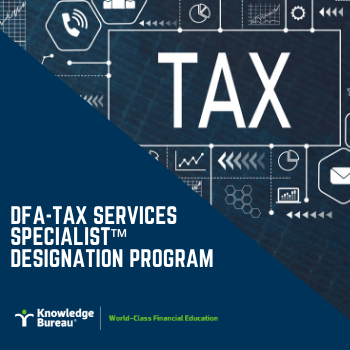Financial Measures to Assist Canadian Families

Evelyn Jacks & Beth Graddon
For individuals and families, the tax filing and tax payment extensions are good news. However, Canadians who are owed refunds will still want to file their returns as soon as possible before the pandemic peaks. Those who owe should consider filing soon as well in order to know exactly how much is due and get their financial affairs in order. Canadians will also want to make decisions about paying down high interest, non-deductible consumer debt as quickly as possible to take advantage of lower interest rates on operating lines and/or business and housing loans. There are, in fact, some opportunities to shore up financial health in these measures that follow:
Tax Filing Deadline and Payment Postponement . The 2020 tax filing deadlines for completion of the 2019 tax returns have been extended:
- May 1, 2020 : Trust returns, with a December 31 year-end.
- June 1, 2020 : Individual returns
- June 15, 2020 : Proprietorship returns (changes to the normal tax filing deadline were not announced)
- August 31, 2020 : Final date for the payment of income tax amounts owing on or after March 18, 2020, and before September 2020. This relief does apply to any tax balances due as well as instalments payable and installments. No interest will apply to deferred payments. Unfortunately, the government did not extend relief to existing balances due. Nor did we see interest rate relief for those people who continue to pay the prescribed rate (currently 2% plus 4% more for a total of 6%). This is a prohibitive rate of interest in the currently climate.
Note: for taxpayers expecting a refund and with regular benefit payments available like the CCB, it is recommended that you file sooner rather than later so that upcoming payment amounts can be calculated correctly.
CRA will also accept electronic signatures on T183 forms or T183CORP forms, which are authorization forms for EFILERs. CRA plans to accelerate efforts to encourage Canadians to file electronically or by phone.
Auditing to continue – soon . CRA’s outreach program will be available over the phone or by webinar, as opposed to in-person, according to these announcements, but there will be little relief for businesses from the tax auditor. CRA pledges not to contact small to medium sized business to initiate post-assessment GST/HST audits or income tax audits – but only over the next four weeks! That’s the bad news. The good news is that CRA will temporarily suspend audit interaction with taxpayer and their representatives.
 Support for the Under- and Unemployed . Next up are the enhancements through the Employment Insurance Program, some of which have been previously announced:
Support for the Under- and Unemployed . Next up are the enhancements through the Employment Insurance Program, some of which have been previously announced:
For those with access to Employment Insurance (EI ). If you are quarantined due to the virus, it is possible to claim EI sickness benefits. The government will waive the one week waiting period for these individuals effective March 15. No medical certificate will be required to access these benefits. Additional provisions include the following:
1. New Emergency Care Benefit. Up to $900 will be available on a bi-weekly payment basis, but applications for these benefits won’t start until April. Those who qualify will be paid for up to 15 weeks with a flat-payment benefit. Recipients will need to re-confirm their eligibility every two weeks. This will be administered through the CRA through one of three secure portals:
a. The CRA MyAccount
b. The My Service Canada account
c. By calling a toll-free number that is equipped with an automated application process. This will be important for those without internet access.
2. Eligibility for The Emergency Care Benefit. The Benefit will be available to the following people:
a. Non-EI eligibility – individuals. Workers and self-employed people who are quarantined or sick with COVID-19 but who have no access to EI sickness benefits.
b. Non-EI eligibility – caregivers. Workers and self-employed people who are taking care of a sick family member (such as an elderly parent) may access the EI sickness benefits.
c. Employed parents whether they qualify for EI or not who are unable to work because they must stay at home to care for children as a result of school closures, may access these benefits.
3. Long-Term Income Support designed for those who lose their jobs or face reduced hours:
a. Emergency Support Benefit - $5 billion in support to unemployed workers not eligible for EI.
b. EI Work Sharing Program - to those who face reduced working hours, EI eligibility will be extended to 76 weeks (previously announced on March 11).
Additional Tax and Profile-Specific Provisions:
4. Relief for Seniors – RRIF required payment will be reduced by 25% for 2020, so that seniors have to liquidate less money during the immediate financial crisis.
5. Low Income Support. Using the existing refundable tax credit system, the following is being introduced, providing approximately $1500 in support to low income families with children:
a. GST Enhancement. A one-time special GST payment will be provided in early May. This will essentially double the existing credits calculated for the 2019-20 year. It provides $400 for singles and $600 for couples. Unfortunately, these calculations reflect last year’s income realities which may have changed quite dramatically especially for the self-employed.
b. CCB Enhancement. The maximum CCB will be increased by $300 per child but only for the 2019-2020 year, for which there are two more payments coming in May and June.
6. Indigenous Communities. The government has also provided for $305 million through an Indigenous Community Support Fund.
7. Relief for Students – 6-month interest free moratorium on the repayment of Canada Student Loans for all individuals.
8. Homeowners – Reaching Home Initiative – help for the homeless will be provided new funding of $157.5 million for purchase of beds, new accommodations, and physical barrier opportunities during required social distancing.
9. Women’s Shelters - $50 in support will be provided to manage capacity here.
10. Banks: the big banks are promising to offer borrowers more flexible repayment solutions, including mortgage payment deferrals of up to 6 months, and flexible arrangements for other credit repayment.
Knowledge Bureau Report will continue to bring you the latest financial and economic news related to the pandemic as it unfolds. This is a free subscription – encourage your colleagues and friends to sign up for peace of mind during these uncertain times. Together, we’ve got this.

COPYRIGHT OWNED BY KNOWLEDGE BUREAU INC., 2020.
UNAUTHORIZED REPRODUCTION, IN WHOLE OR IN PART, IS PROHIBITED.